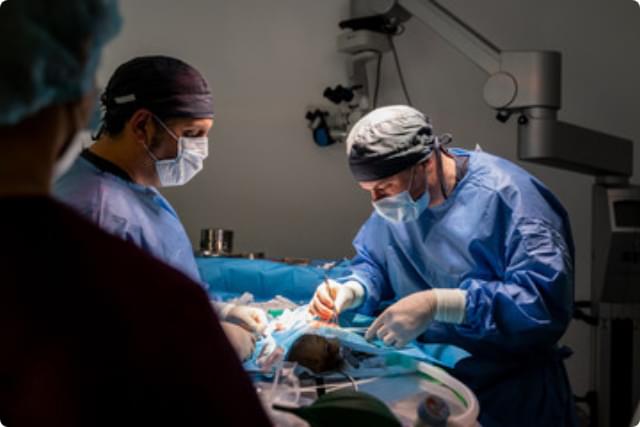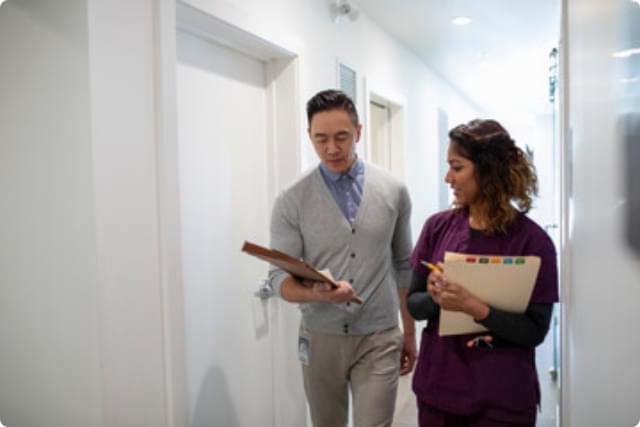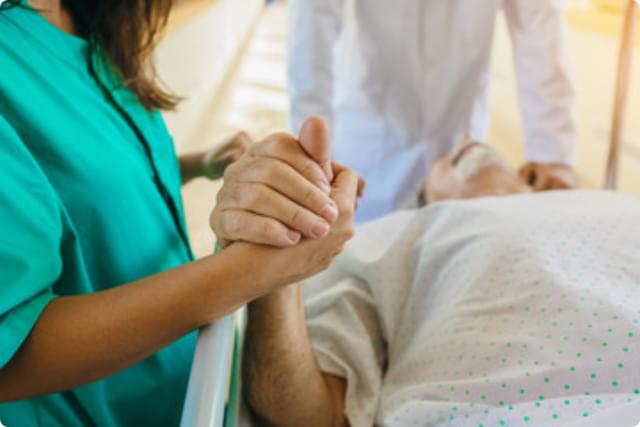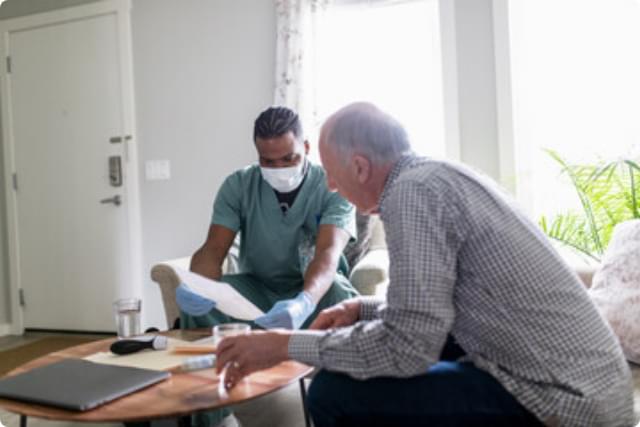EAST OHIO
REGIONAL HOSPITAL
SURGICAL PROCEDURES
SURGICAL PROCEDURES
Preparing for Pre-Op
Bring your insurance card(s); home medications in the original bottles and reports of lab work, chest X-rays or EKGs done within the last three months, if performed at other facilities. Children under the age of 18 must be accompanied by a parent or legal guardian. Adult patients who are incompetent must be accompanied by a guardian able to sign legal papers. Patients should dress casually since some undressing is necessary. A two-piece outfit with socks works best! Patients should take their regular medications on Pre-Op day. Patients may also eat and drink on Pre-Op day, unless otherwise instructed by their physician. On the day of the Pre-Op appointment, patients should report to the reception desk prior to your scheduled appointment time. Patients will be called to register, then walked to the appropriate pre-op area.


What to Expect During Pre-Op:
An interview with a registered nurse.
An interview and examination by an anesthesiologist, who will discuss the patient’s anesthesia, after which the patient will sign an anesthesia consent form.
A history and a physical, performed by a physician assistant, if the patient is being admitted to the hospital after the procedure.
Verbal and written instructions for the procedure day.
Pre-procedure testing if ordered by the surgeon or anesthesiologist. If X-rays or other forms of tests, such as respiratory tests, have been ordered, the patient will be escorted to the appropriate departments to complete the pre-op testing.
The length of the pre-op visit varies, but allow at least 90 minutes.
Preparing for Outpatient Surgery
Bring your insurance card(s), and home medications in the original bottles. Children under the age of 18 must be accompanied by a parent or legal guardian. Adult patients who are incompetent must be accompanied by a guardian able to sign legal papers. Wear comfortable clothing. Jewelry, makeup, nail polish or hair pins should not be worn. All valuables must be left with a family member. Take medications as instructed by the pre admission testing clinic. Do not eat or drink after midnight prior to surgery. Arrange for a responsible adult to drive patient home. Children are permitted to bring a favorite stuffed animal or toy to take to surgery with them.

Outpatient Surgery
On the day of your appointment, report to the reception desk in the main lobby at or the surgical reception area at EORH, located at the rear of the hospital next to EMSTAR. Arrive two hours prior to scheduled surgery time. Sign in and await the call to register. Once registered, the patient will be escorted to the preparation area. When admitted to the preparation area for surgery, the patient will change into a gown. Street cloths will be placed in a clothing bag and put in a locker. The patient will enter a preparation area where temperature, pulse and blood pressure will be taken. A nurse will take a health history. The family will be allowed to visit until the patient is taken to the operating room.
After surgery is performed by the doctor, the patient will return to the dressing room to get dressed in his/her own clothing. The patient may go home right after surgery if he/she has not been given any sedation. If sedation is given during surgery, the patient may be taken to the Post-Anesthesia Care Unit (PACU). Post-surgical instructions will be given to the patient or family by the doctor or nurses.
The patient will be escorted to his/her car. However, the patient should be accompanied to the hospital by a responsible adult who is able to remain during the surgery and times spent in the PACU, as well as drive the patient home after outpatient surgery. Patients will not be permitted to drive themselves home or take public transportation after outpatient surgery. Outpatients must not work, drive or use any dangerous machinery for at least 24 hours following the anesthetic. No alcoholic beverages or tranquilizers should be taken for at least 24 hours. Eat and drink lightly after arriving home. Patients should be able to tolerate food and drink well before they take larger amounts. If any problems occur after surgery, the patient should contact his/her doctor at the physician’s office.

Surgery for Patients Being Admitted (Day of Surgery Admissions)
On admission to the surgical preparation area, the patient will change into a gown. All those who are being admitted after surgery, except OB patients, are to leave their suitcases in the car until after surgery when their room assignment has been made. Their street clothes will be placed in a clothing bag and given to family members. After admission to the preoperative surgical area, the patient will be assessed by a registered nurse and an intravenous (IV) will be started. If a completed surgical consent form has been signed by the patient and surgeon, any preoperative sedation that has been ordered by the doctor or the anesthesiologist may be administered to help the patient relax. This is not the anesthetic, but it may make the patient drowsy.
After the nurse has completed the assessment and started the IV, family members may visit until the patient is transported to the holding area outside the operating room suite. The patient will be assisted in transferring from the cart to the operating room bed. The anesthetic will then be administered and surgery performed. During surgery, families are directed to the surgical waiting area. The doctor will come to this area to talk to the family after surgery is completed. If the family must leave this room for a period of time, they should inform a volunteer of their location.
After Your Surgery
After surgery is completed, the patient will be transported to the Post Anesthesia Care Unit (PACU). Upon awakening, the IV may still be in place and an oxygen tube may still be in the patient’s nose. The PACU personnel will watch the patient closely until he/she is fully awake. It is important for the patient to let the nurse know if there is any discomfort or nausea so medication can be given if needed. Patients with questions, concerns or who require work release from their doctor should inquire preoperatively since they may not see the doctor in the recovery area. Children experience a smoother emergence from anesthesia if they are permitted to awaken on their own. For this reason, parents will be called to come back when children begin to awaken, not necessarily on immediate arrival from surgery. The length of stay in PACU depends on how quickly patients awaken, whether they experience discomfort or nausea requiring medication, and how soon a room is available upstairs for day-of-surgery admissions (DOSA).
Once awake and comfortable, the patient will be discharged from the PACU and taken to his/her room in their post-anesthesia care bed.

